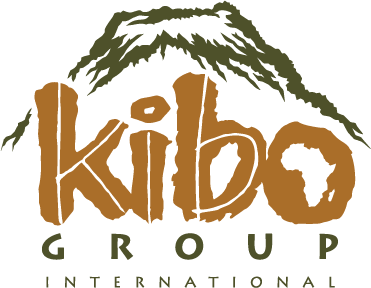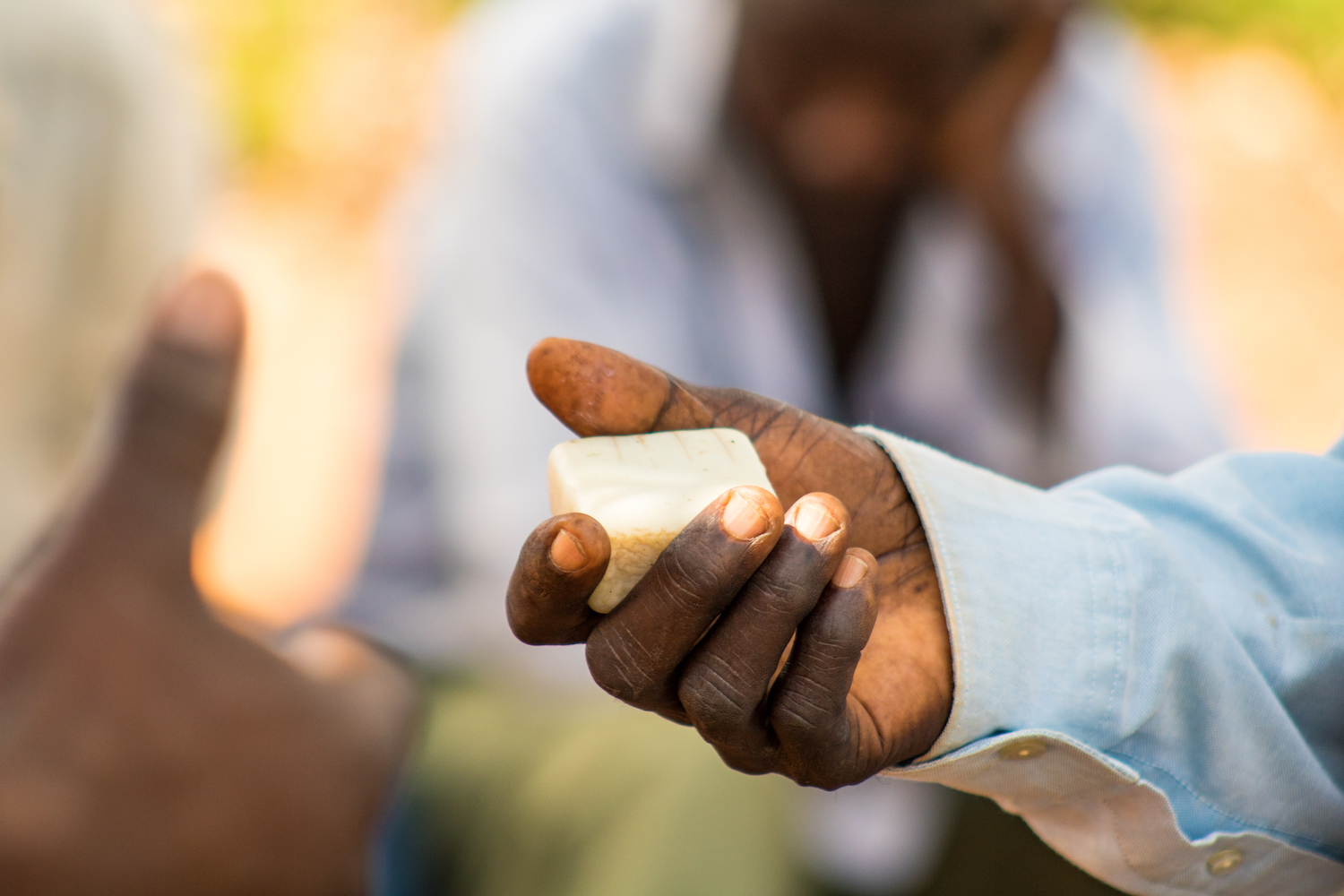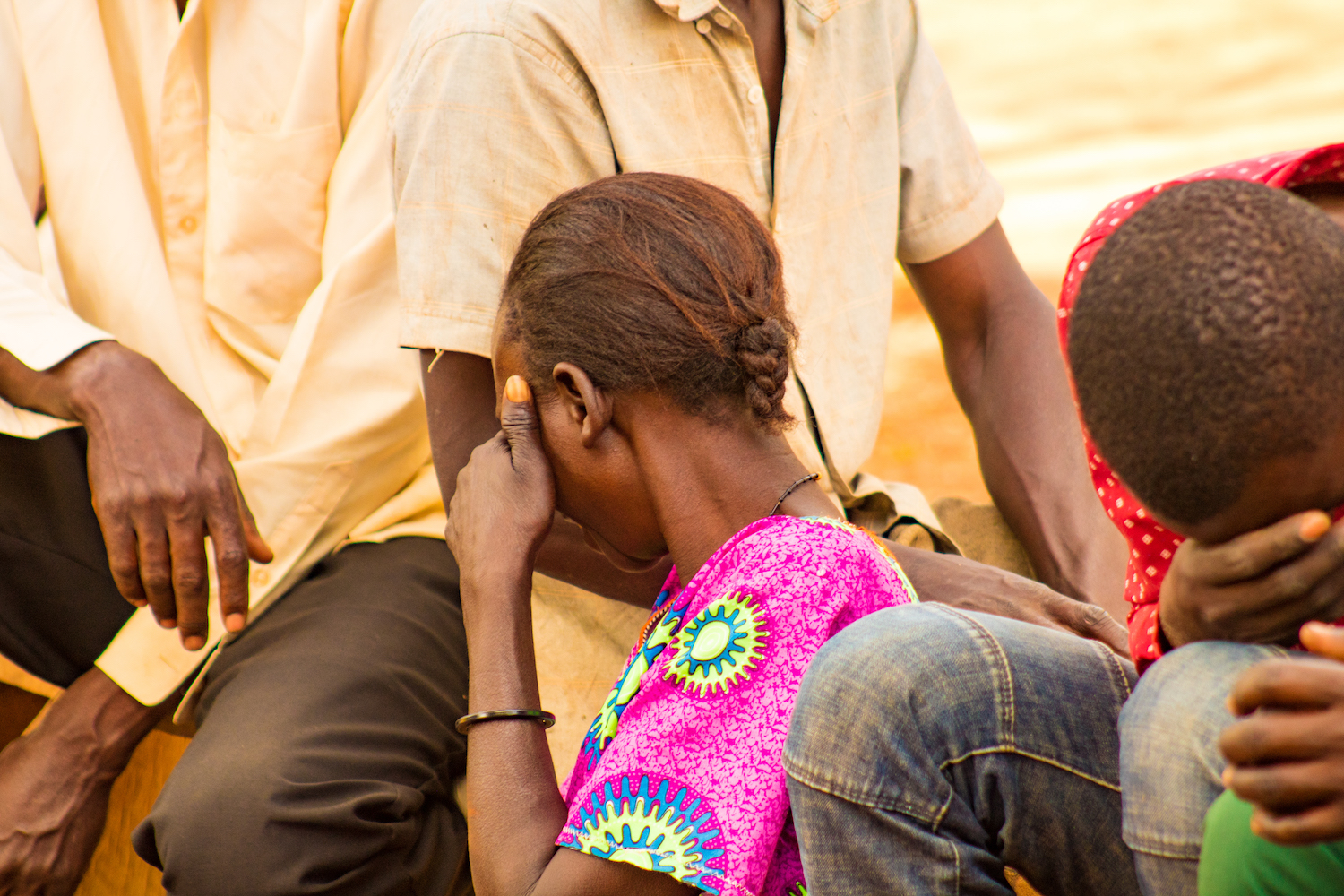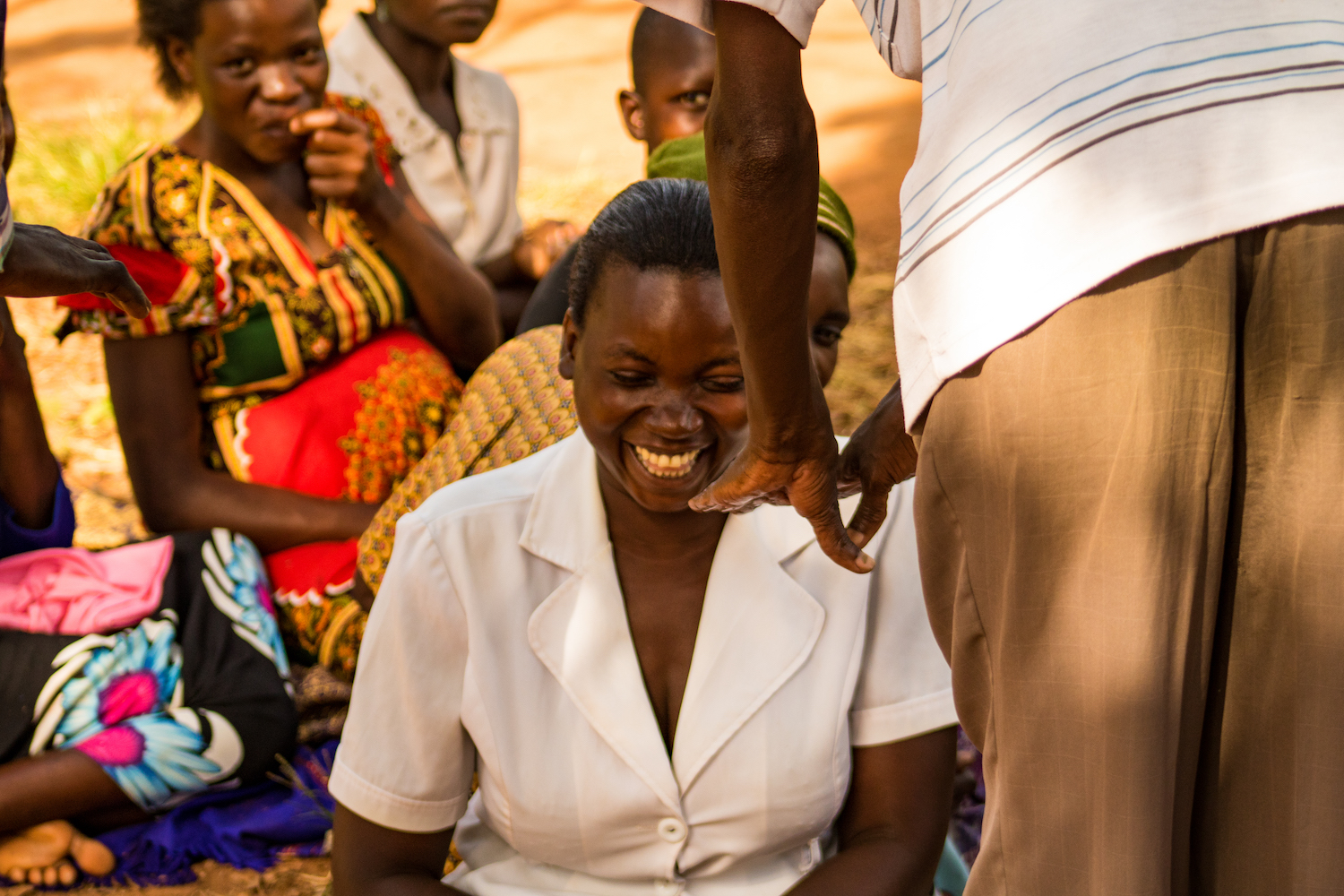Clean hands? Think again. Kibo’s newest curriculum puts WASH back in handwashing.
“Are your hands clean?” Water, Sanitation, and Hygiene (WASH) manager Tom Ngobi asked in Kalitumba village during Kibo’s first-ever handwashing triggering session. Thirty hands shot into the air to indicate that the community members considered their hands to be clean. Tom then showed them just how wrong they were.
“Triggering” sessions are one of the first activities Kibo leads in a community. The purpose of triggering is to transform people’s thinking — to convince them of the importance of hygiene and sanitation. In other words, the purpose of triggering is to gross out a community so much that they become warriors against germs and disease.
If a community is not convinced of the importance of proper sanitation, even the best structural change will not last. That’s why Kibo implements a curriculum called “Community-Led Total Sanitation” (CLTS). The community leads the process. Kibo’s job is to ask the right questions, keep them accountable, and give them the tools they need to improve their own lives.
While Kibo’s general triggering program effectively convinces a village to construct latrines and to end open defecation, it has not been effective in communicating the importance of proper handwashing. It’s a classic case of information overload. That’s why Tom and the WASH team introduced an additional triggering session aimed at convincing communities of the importance of handwashing.
It’s not enough to tell a village that soap is important or even to hand out free soap. For a sanitation program to be sustainable, community members have to see and feel and smell why soap is worth the added expense of 250 shillings, or 7 cents, per week.
“Peel this boiled egg,” Tom began. Several volunteers, having washed their hands thoroughly without soap, peeled the egg and rolled it around in their hands. Tom showed them how the once-white surface of the egg was covered in brown splotches. “I thought you said your hands were clean!” Tom joked with the group.
Next, Tom asked a new set of volunteers to wash their hands twice. The first time without soap, the second with soap. After each wash, Tom collected the water and put it in a clear plastic bag. The water in the first bag was relatively clean because plain water removes few impurities from the volunteers’ hands. The second bag, however, was a sickly shade of brown. “Didn’t you say you washed your hands?” Tom asked. “Where did all this dirt come from?” The community members were shocked.
Tom then pulled out a bag of crushed charcoal. Volunteers covered their hands with the black powder and then washed their hands with soap. “Dip your fingers in this perfectly white posho,” Tom directs. The community members gathered around the bowl and saw the small black specks that remained under community members’ fingernails even after washing with soap.
During handwashing triggering, the WASH team uses charcoal as a stand-in for feces to demonstrate how dirt sticks to hands and under fingernails.
Posho is a common food base in Busoga. It is a white, soft mash made from corn meal. It is usually eaten with hands from a shared bowl.
While the water is dirty after rinsing with water, it is absolutely filthy after washing with soap. The community sees the importance of handwashing.
This conversation is amusing when discussing charcoal or soil from the garden, but those aren’t the contaminants Tom is worried about. Kibo doesn’t shy away from discussing gross things if it can save lives. Fecal matter is the real motive. In communities where toilet paper is nonexistent, open defecation is probable, food-sharing is the norm, hand-shaking is widespread, and disease is rampant, poop can spread around a village with ease — and with it, diseases like typhoid and dysentery. Not to talk about poop when working in rural communities is a travesty that makes all other development work futile.
At the end of the triggering, everyone who attended receives a jerrycan and clothesline to build their first handwashing station. The WASH staff empowers people to be creative and build a long-lasting handwashing station that serves their whole family for a long time.
Like any culture, Kalitumba enjoys their fair share of poop jokes, and the handwashing triggering session was a lighthearted affair. The effects of that single afternoon, however, go beyond any technology, product, or method Kibo could have provided. Those thirty people, armed with reference points and a newfound appreciation for soap, will go back to their kitchens and latrines with new eyes to see the unseen and stand up against diseases that ravage their community.

















